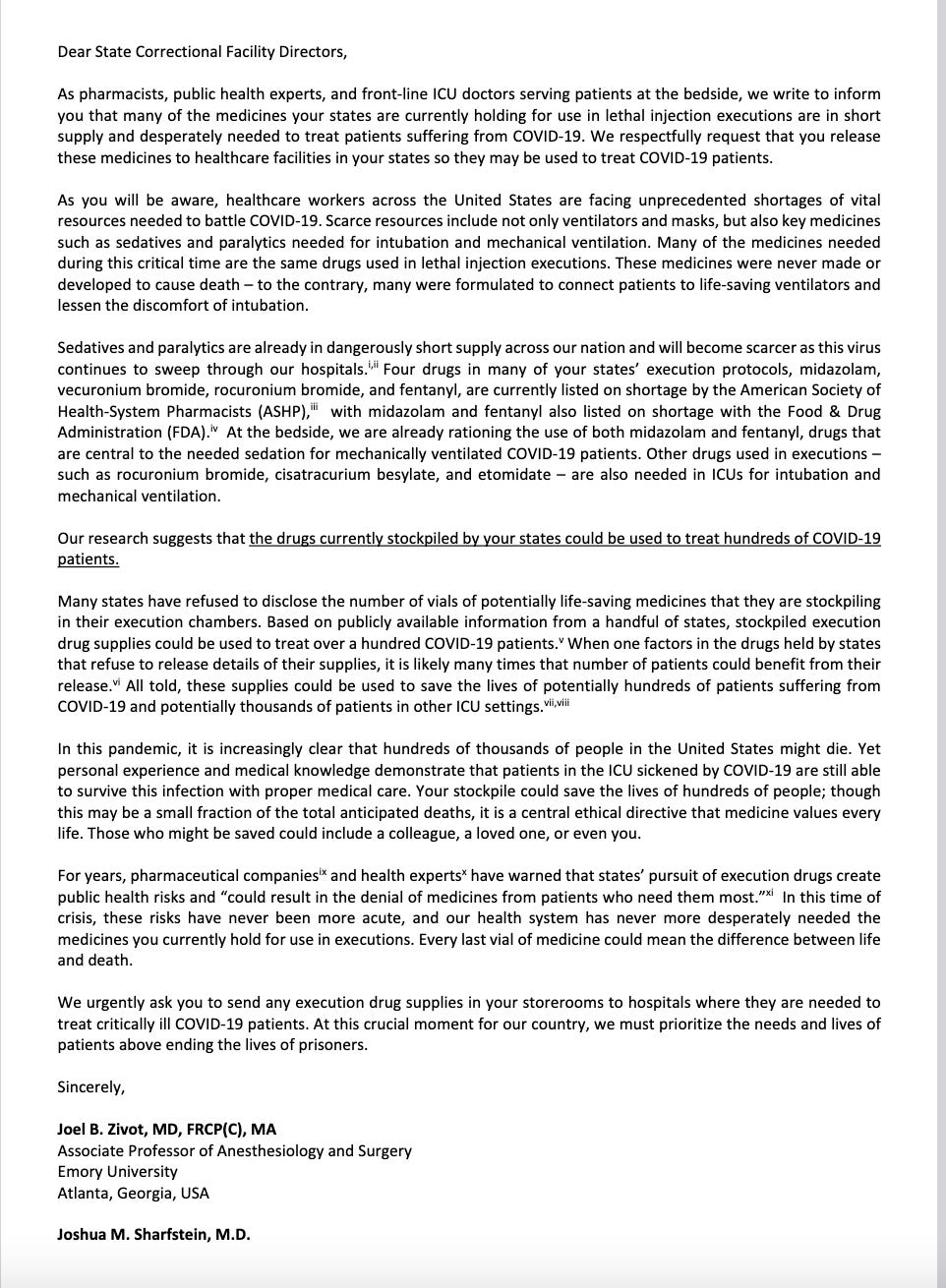Are Death Penalty Lethal Injection Autopsies Similar to Patient Autopsies after Hospital COVID-19 Killing Protocols?
If a family member was given the same lethal injection(s) as Death Penalty prisoners, they may share the same autopsy findings. And if so, did they suffer, and was it a "cruel" practice?
On April 14, 2020, a group of nine doctors wrote an open letter to all states having a death penalty, asking them for drug donations.
The first author was Dr. Zivot, who I first heard of through Scott Schara’s series on Medical Murder as the #1 cause of death in the USA.
The Letter
The letter referred to a shortage of fentanyl, midazolam, and vecuronium bromide, used for pain relief, sedation and amnesia, and paralysis. It stated they were needed to assist with intubation and mehanical ventilation.
I remember during this time, early 2020, that my anesthesia associates remarked on the shortage, saying they were intubating patients without sedation, i.e., they were wide awake when a breathing tube was put into their breathing pipe or trachea.
While Dr. Zivot never received any donations, I looked him up to find his background was that of a lethal injection expert. And as I looked through his portfolio, I found an interview that is of interest on autopsies of those who died at the hands of a lethal injection - whether it was in a prison Death Penalty floor, or in the local hospital as part of the Hospital Killing Protocols.
NOTE: This content may be disturbing to some viewers, as it involves details of lethal injection. The reason I feel it important to review these data is because hospitals used lethal injection drugs for COVID-19 patients, some of the same ones used for prisoners given the death penalty. A description of the autopsy findings found in lethal injections of Death Penalty prisoners are pertinent to compare with the autopsy findings of someone who died in the hospital under hospital-imposed lethal injection or medical murder.
Joel Zivot, MD, is an anesthesiologist who is an Associate Professor of Anesthesiology and Surgery at the medical school at Emory University Hospital Midtown in Atlanta, Georgia, and an Adjunct Profession in the Emory School of Law and the Emory School of Liberal Arts. He received his medical degree from University of Manitoba and has been in practice for more than 20 years. He also holds a Master’s Degree in Bioethics from Emory University.
Dr. Zivot and a list of doctors requested a list of sedatives, opioids, anesthetics
Keep reading with a 7-day free trial
Subscribe to The Rebel Patient™ to keep reading this post and get 7 days of free access to the full post archives.









